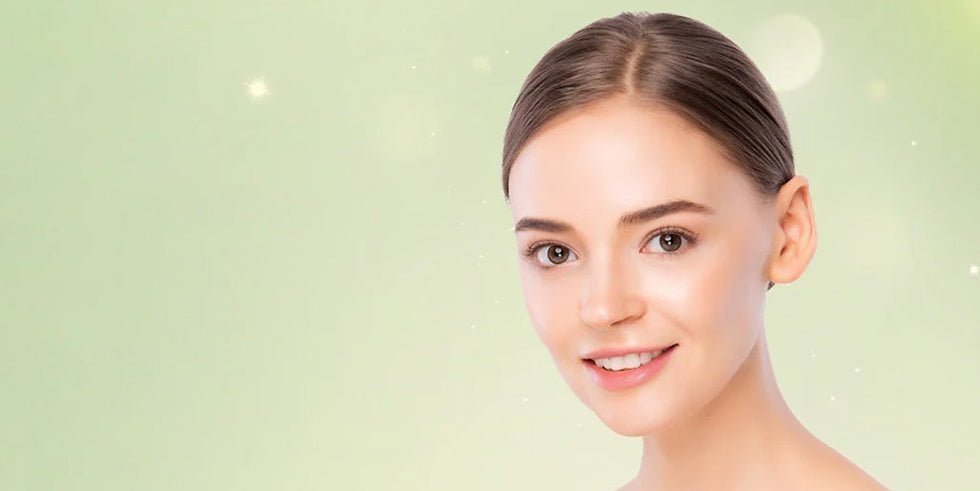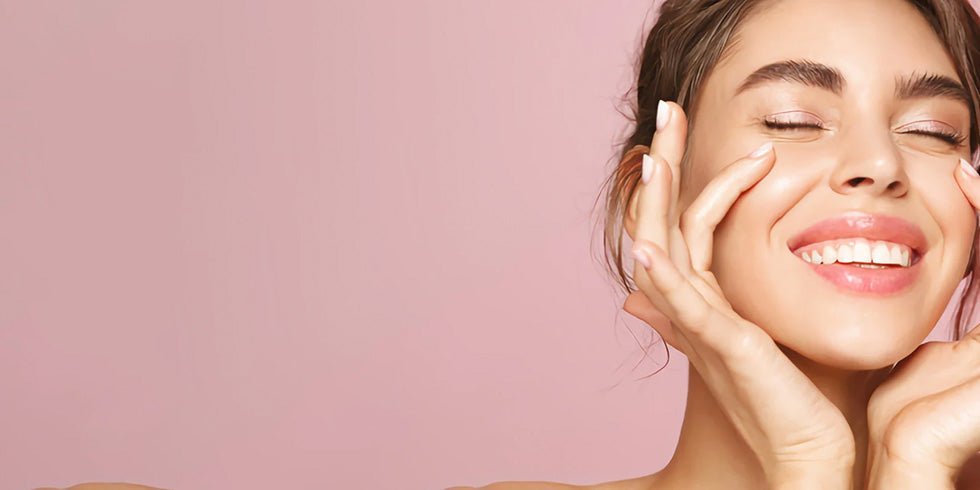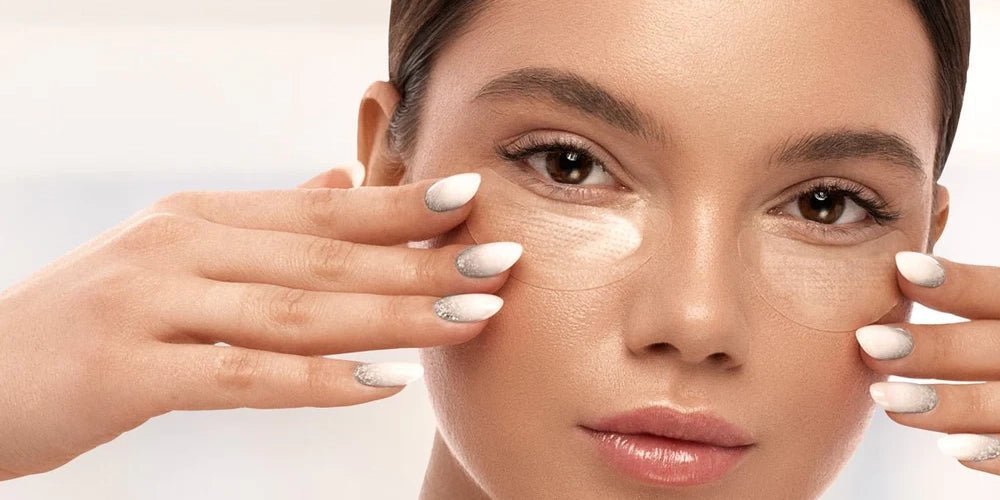Acne and Scarring 😶🌫️
·

·
One skin issue that has travelled through time with every generation is acne and the blemishes and scarring it leaves behind. Acne and scarring can make you feel self-conscious - especially when Christmas and New Year Parties are at every turn... not to mention those dreaded obligatory ‘work do’s’.
There are many reasons why acne scars appear; ranging from it being hereditary to happening more as the skin loses collagen with age. Over time, the skin loses collagen which plays a key role in the skin’s healing process. Therefore, less collagen production equals slower repair for scars left as a result of acne. Remember, acne is an inflammatory condition, and the longer your skin remains inflamed, the higher the likelihood of developing scars. Whilst this can be frustrating and stubborn to deal with, what you need is the right treatment, time, and dedication, to really fight off breakouts and reduce the scars that acne leaves behind.
Let’s have a look at some of the ways in which you can restore your complexion back to smooth skin by eliminating acne and long-term scarring.
There are many reasons why acne scars appear; ranging from it being hereditary to happening more as the skin loses collagen with age. Over time, the skin loses collagen which plays a key role in the skin’s healing process. Therefore, less collagen production equals slower repair for scars left as a result of acne. Remember, acne is an inflammatory condition, and the longer your skin remains inflamed, the higher the likelihood of developing scars. Whilst this can be frustrating and stubborn to deal with, what you need is the right treatment, time, and dedication, to really fight off breakouts and reduce the scars that acne leaves behind.
Let’s have a look at some of the ways in which you can restore your complexion back to smooth skin by eliminating acne and long-term scarring.
 |
OVER-THE-COUNTER (OTC) TREATMENT If you’re someone who suffers from minor acne breakouts, OTC treatments could be what works for you. Washe, creams, ointments, and oils that contain benzoyl peroxide or salicylic acid are a good place to start. OTC or non-prescription products can also help to minimise the appearance of acne scars, depending on what you choose to use. For example, look for an OTC dark spot remover with hydroquinone which may help these scars to fade quicker. Whilst acne treatments with alpha hydroxy acids can stimulate the growth of new skin, this includes products that contain glycolic acid and lactic acid. |
MANAGE DISCOLOURATION
A good dermatologist and treatment plan will put focus on addressing the discolouration within the acne scars first. This is because acne affects different skin tones in different ways, which should always be kept in mind when you’re trying to identify the best solutions for you. Lighter skin tones will likely have red scarring as a result of acne, whilst tanned and darker complexions will often produce brown marks after acne. Some of the strongest topical treatments for discolouration include vitamin C serums, and retinol—a derivative of vitamin A. Both components are packed with antioxidants and key nutrients to protect the skin from harmful free radicals, and boost cell turnover to stimulate collagen production. Incorporated in your acne treatment, they can significantly reduce dark spots. Choose our LUNA MICROCARE® LUMINOUS range to revive your complexion with a radiance-restoring treatment at home. LUNA MICROCARE® LUMINOUS corrects hyperpigmentation and boosts luminosity, and tackles discolouration; revealing beautifully radiant, hydrated and even-toned skin.
A good dermatologist and treatment plan will put focus on addressing the discolouration within the acne scars first. This is because acne affects different skin tones in different ways, which should always be kept in mind when you’re trying to identify the best solutions for you. Lighter skin tones will likely have red scarring as a result of acne, whilst tanned and darker complexions will often produce brown marks after acne. Some of the strongest topical treatments for discolouration include vitamin C serums, and retinol—a derivative of vitamin A. Both components are packed with antioxidants and key nutrients to protect the skin from harmful free radicals, and boost cell turnover to stimulate collagen production. Incorporated in your acne treatment, they can significantly reduce dark spots. Choose our LUNA MICROCARE® LUMINOUS range to revive your complexion with a radiance-restoring treatment at home. LUNA MICROCARE® LUMINOUS corrects hyperpigmentation and boosts luminosity, and tackles discolouration; revealing beautifully radiant, hydrated and even-toned skin.
 |
SEEK OUT OTHER REMEDIES A common misconception is that acne only affects you when you’re in your teens. However, it’s quite common for some people in their 20s, 30s, 40s, and beyond to suffer from acne and scarring. Acne is a result of when pores in the skin clog up. These clogs of sebum in the skin may cause a pimple – or few. The overproduction of sebum is particularly common during times of hormone fluctuations; during puberty, pregnancy, and menopause. If you find that OTC products don’t work for you, look a little closer to home – by that, we mean your pantry! Highly recommended is honey, and tea tree as both carry strong antibacterial and anti-inflammatory properties which help to keep the skin clean for those with mild to moderate acne. For scars, baking soda, and lemon juice (not together), are proven to work wonders. Choose LUNA MICROCARE® FLAWLESS® as it targets the multiple pathological processes including production of human sebum that clogs hair follicles, disturbed keratinisation within the follicle, and the inflammatory mediators as a part of comprehensive and balanced approach. LUNA MICROCARE® FLAWLESS® involves a few humble application steps that includes wiping the affected area with a simple cleanser. It helps to remove and prevent the recurrence of acne, leaving your skin feeling smooth, fresh and restored. |
|
TRY A CHEMICAL PEEL Whether you book it with a professional or you want to try another at-home strategy, chemical peels that are infused with acids work gently to exfoliate the skin and keep it clean. During a chemical peel, a chemical solution is applied to the skin, which removes the outer layer of your skin, resulting in a smoother and more even appearance. Chemical peels can cause redness and peeling so try to opt for something mild to begin with. Peels infused with acids such as lactic, glycolic, and trichloroacetic, are gentle and effective, and in the long-term will continue to reveal smoother and more even skin. |

|
 |
CONSIDER DERMATOLOGICAL PROCEDURES
There are a variety of procedures that can help those struggling to eliminate their acne and scarring. Some of these include: Dermabrasion - an effective scar removal treatment using a high-speed brush or other tool to resurface your skin and reduce the depth of scars; Microdermabrasion - a less-intensive type of dermabrasion, where a handheld device removes surface skin; Fillers - a substance such as collagen or hyaluronic acid can be used to "fill out" certain types of acne scars. Since fillers are eventually absorbed into your skin, you’ll have to repeat filler injections, usually every few months, depending on the substance used; Microneedling - this involves pricking the skin repeatedly with tiny needles to stimulate the growth of new collagen. This can reduce the appearance of scars as well as improving the appearance of wrinkles, stretch marks, and fine lines; and last but not least, there’s Laser - a resurfacing treatment to remove the outer layer of your skin, contour areas of acne scars, or lighten redness around healed acne lesions. It is important that you thoroughly research and seek out a certified professional for these procedures. |
CREATE AN ANTI-ACNE SKINCARE REGIME
Tanning beds and sitting in the sun without optimum protection will damage your skin. Additionally, some acne medications make the skin very sensitive to ultraviolet (UV) light, which you get from both the sun and indoor tanning tools. Furthermore, being under the sun or using tanning beds can increase your risk for melanoma, the deadliest form of skin cancer, by 75 percent. You may find that your pimples temporarily clear up or appear less obvious when you skin is tanned because the sun's UV rays zap acne-causing bacteria. However, the sun can actually do more harm than good for your acne. Remember sweating? Increased oil production, sweating and increase in clogging of the pores , as a result of increased temperatures, are going to negatively impact acne.
Tanning beds and sitting in the sun without optimum protection will damage your skin. Additionally, some acne medications make the skin very sensitive to ultraviolet (UV) light, which you get from both the sun and indoor tanning tools. Furthermore, being under the sun or using tanning beds can increase your risk for melanoma, the deadliest form of skin cancer, by 75 percent. You may find that your pimples temporarily clear up or appear less obvious when you skin is tanned because the sun's UV rays zap acne-causing bacteria. However, the sun can actually do more harm than good for your acne. Remember sweating? Increased oil production, sweating and increase in clogging of the pores , as a result of increased temperatures, are going to negatively impact acne.









